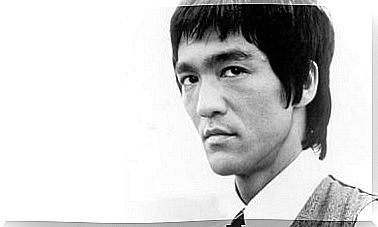Emotional Intelligence Interview For Leaders

The emotional intelligence interview for leaders shows us a reality: we are facing an essential competence in any organization. We cannot demand it from employees or work groups if our bosses, managers or directors do not exercise it effectively and skillfully. For this, it is interesting to have some instrument with which to assess this ability.
Daniel Goleman, in his latest book How to be a Leader , points out that, on average, when someone ascends to a position of responsibility, they are recommended to train in that series of strategies that make up emotional intelligence. However, the reality should be quite different.
However, as we well know, this does not always happen. The ability to handle, understand and connect with our own and others’ emotions is our pending account.
The ability to know how to communicate, understand the perspectives of who we have in front of or regulate the internal states to improve coexistence and reach agreements, are pillars that have not yet been fully established in our workplaces.
However, yes, we are working on it. Many company managers and psychologists are committed to change. We know that good performance, business management, innovation and the advancement of any organization depends on this competence, on Emotional Intelligence.

The dimensions that make up emotional intelligence in a good leader
The Gottam Institute, specialized in research on social, affective and work relationships, is today one more reference in the understanding of emotional intelligence and its impact on our society.
Thus, the psychologist Christopher Dollar wrote an interesting work entitled Emotional Intelligence Is Key to Successful , which addressed the importance of our leaders being skilled in this competition.
The Dollar model
Above all, Dr. Dollar stresses the need to maintain a positive outlook in dealing with others. One where, as a leader, the person is able to validate and not invalidate. To awaken potential and not to restrict it.
It is about awakening motivation, support and self-confidence. The good leader nurtures and encourages his organization to be able to face challenges, to share synergies to always advance being the same team dreaming of the same project.
Likewise, an aspect that should be assessed in an emotional intelligence interview for leaders is their ability to make disagreements converge into agreements. It is essential that each idea, opinion and perspective be taken into account, but redirected in turn towards a common goal where everyone feels identified. And such a task, of course, is not easy.
Therefore, it takes multiple skills to be effective in this area. It is not enough to read a book, to take a course.
Emotional intelligence makes leaders good because it is impregnated in their attitude, in their way of communicating, solving problems and living together in the organization itself. Thus, Daniel Goleman’s model of leadership focuses basically on four dimensions.
Goleman’s model
- Emotional awareness. Being able to understand their internal realities and manage them.
- Self-confidence. Defined by the connection and trust with one’s own abilities to face complex challenges, to energize the group.
- The third dimension is self-management. Within this dimension, self-control, adaptability, initiative, ability to achieve, etc. are integrated.
- Last but not least, there is social awareness. In it, there is empathy, the ability to inspire, to organize, to create a suitable emotional climate for people to give their best, in happiness, hope, interest …
All these areas are what should make up the emotional intelligence interview for leaders. Let’s see what it consists of.

Emotional intelligence interview for leaders, what does it consist of?
To carry out the emotional intelligence interview for leaders, it is usually based on the research work of the doctor
The questions are usually the following:
- If you started your business project today, what values would define it?
- Put yourself in the following situation: an employee of your company questions your authority or instructions, how would you respond?
- Explain how you would handle differences or problems between two members of your company.
- How do you see yourself in five years?
- What would you do to make one of your employees capable of doing their best?
- How do you handle last minute changes?
- On average, how do you act or respond to competitiveness?
- Now, tell me about an achievement you would like to achieve with your team. How would you go about it?
- Tell me about a personal achievement, one where you can highlight your perseverance or endurance.
- Tell me about a time when your mood had an impact on your work (both positive and negative).
- Explain how you would handle a stressful situation in your work environment.
- How would you help a person reduce their anxiety?
To conclude, the emotional intelligence interview for leaders seeks for the person to be able to demonstrate their ability in those points that, on average, represent this relevant competence.
Sometimes beyond your demonstrable experience is your knowledge, creativity, and willingness to apply this skill on a day-to-day basis. Without a doubt, that will be the real key.









